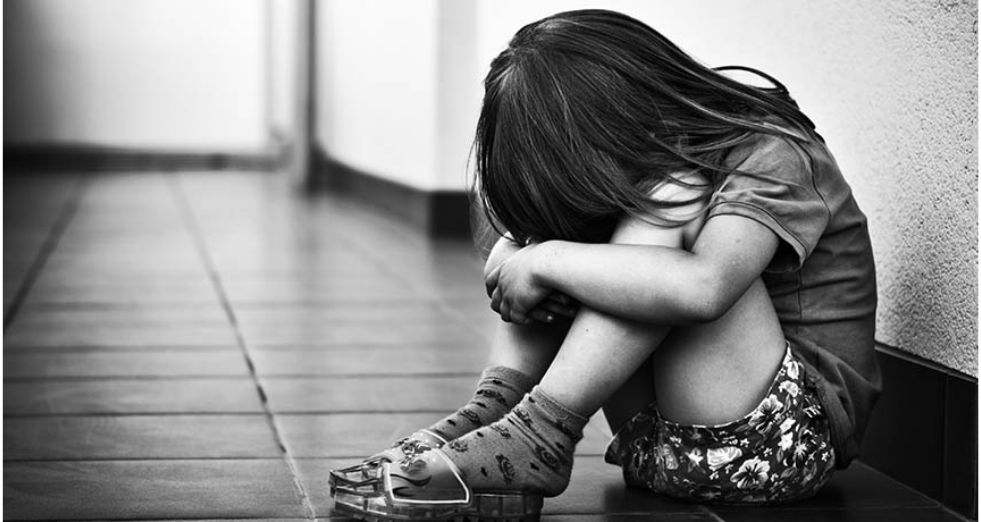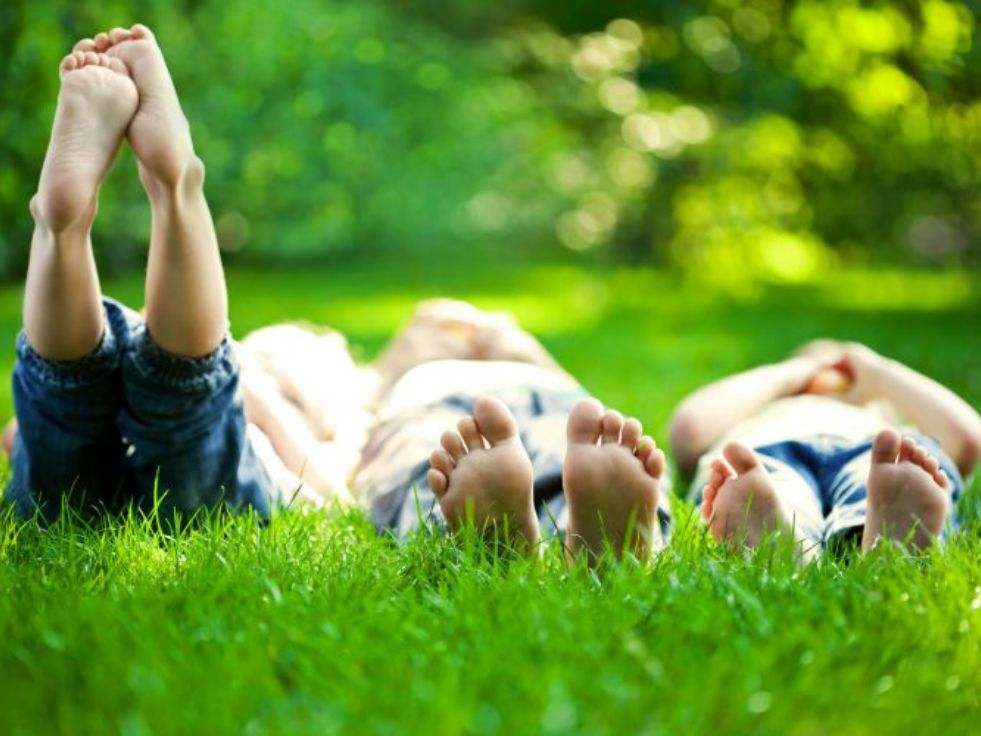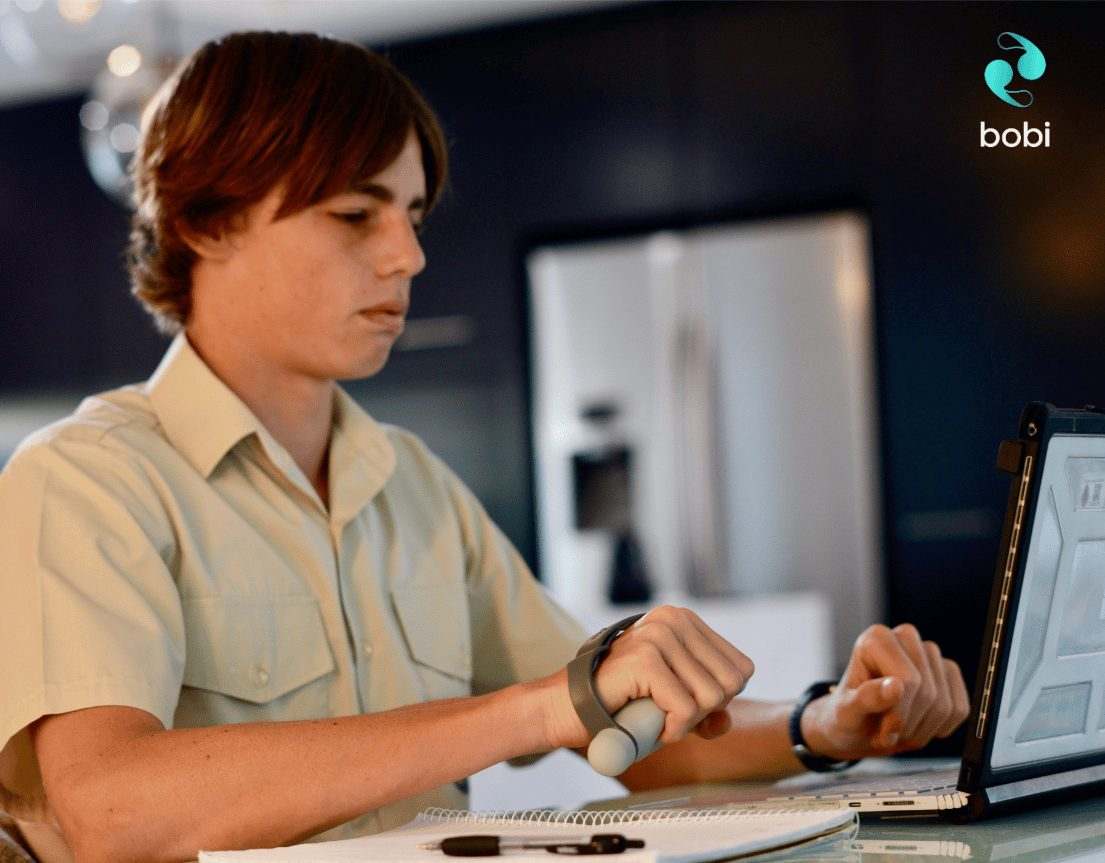
We don’t have something like a weather app to predict our children’s emotions. Children are busy 24/7 doing so many activities, jumping, scaling mountains, and studying, their minds leaving superheroes behind in this race. While doing all these things at a time, they suffer from stress or anxiety, affecting them physically and emotionally.
Therefore, ensuring they slow down and relax is like a mission fit for the Avengers. It is recommended to address your child’s anxiety or stress issues ASAP to avoid any difficulties in the future. The solution is Progressive Muscle Relaxation (PMR) for kids. For this, there’s a secret weapon _ bobi designed to turn the bedtime battles of your kiddo into a peaceful sleep.
Please stick with us till the end to learn the science behind Progressive Muscle Relaxation for kids for a healthy life of your children.
Progressive Muscle Relaxation, or PMR _ is a deep relaxation technique introduced to treat children suffering from stress or insomnia. It works on the ‘Tense and Relax‘ approach and follows a straightforward command that tightens a muscle group at a time, holds the tension, and then releases it.
This ‘Tense and Relax‘ method is a wholesome awareness, not just a physical exercise. With this strategy, Kids find it easy to identify stress points in their body, pinpointing the hidden tension points they didn’t know existed.
Your children’s engagement in Progressive Muscle Relaxation is like a treasure hunt, where they leave their anxiety behind and learn how to eliminate it. It’s like arming your little ones to dissolve these stress bombs into whispers of tranquility.
PMR is a technique that can turn the abstract concept of relaxation into an attainable goal. According to Professionals, adults, and children suffering from stress or sleeplessness can gain equal results from this strategy. It’s like teaching your kiddo to cross a dark room by turning the lights on and controlling their environment. Children learn the secrets behind the art of “calming down, knowing that if they choose and try, peace is achievable, step by step.
This magical technique isn’t just limited to physical exercises. Rather, its simplicity and profound effect on the body’s physiological responses differentiate it from others. Therefore, this is a perfect solution to alleviate stress and anxiety in children. Progressive Muscle Relaxation doesn’t just engage the little ones in certain motions. Instead, they learn how to talk directly to their autonomic nervous system ( a system that manages all the involuntary actions of a body, such as breathing and heartbeat). The science behind Progressive Muscle Relaxation is in its activation of the relaxation response of the body, a lavish term for switching the brain from “fight or flight” mode to “rest and digest.”
This flipping mode is required to drop heart rate, reduce cortisol levels (body stress hormone), and lower blood pressure. Imagine you’re updating your body, saying, “Hey, the coast is clear; you can chill now!”. Consequently, you’ll experience instant relaxation and a healthier and new paradigm for stress management.
It’s proven that children regularly practicing PMR are seen as more challenging to stress as they learn to stay centered on their emotions with the strength to face the hurdles of childhood.
Progressive Muscle Relaxation for kids is more than just a fleeting sign of relief. Let’s explore the benefits of PMR in depth.
In the modern world, stress is inevitable. Adults and children also go through their day-to-day stressors like social changes, academic pressures, and the stimuli from an unending scrolling of technology. PMR is a perfect refuge for stressed children to help them manage the internal tensions and inner pressures on their little minds.

When children learn to get relaxation with regular exercise of tensing and relaxing of muscles, they start recognizing the physical signs of stress. The most crucial step in managing anxiety is this awareness like you’re giving a name to a face. It’s crucial to teach children what stress feels like in a body so that they can actively reduce it. In other words, Progressive Muscle Relaxation is like a personal calming coach for a kiddo to turn his anxiety into relaxation, equipping them with magic to manage their inner little world despite the chaos they may be surrounded with.
A child’s healthy development requires nutrition, exercise, and good sleep, yet it is the last thing on our priority list. Progressive Muscle Relaxation guides the children through relaxation by bridging the gap with better sleep. The ‘Tense and Relax’ practice systematically relaxes the muscles of the little ones before bedtime, indicating it’s time for bodies to slow down, giving a smooth surrender into their dreamland.
Children experience more peaceful sleep quality with this technique, leading to deeper and refreshing levels of slumber. The regular practice of Progressive Muscle Relaxation ensures that children get restorative sleep by reducing sleep issues like insomnia or difficulty falling asleep.
Children suffer from overwhelming emotions like adults, especially those too young to handle their feelings. Progressive Muscle Relaxation gives your child a practical way to cope with intense emotions by releasing their hard feelings through a physical outlet. The regular exercise of tensing and then releasing muscles teaches your kiddos to let go of their harsh emotions.
Over time, children learn it’s okay to experience complex emotions without feeling overwhelmed. In this way, children start mastering their emotional responses. It’s like you have an inner compass that helps your little one identify his feelings, comprehend them, and respond healthily and positively. In short, Progressive Muscle Relaxation is your child’s toolkit that enables him to fix his emotional responses with elegance and resilience rather than feeling entangled in your emotional web.
bobi is an innovative mindful tool that fosters Progressive Muscle Relaxation for kids. When your children feel uptight and those butterflies of stress or anxiety, bobi alleviates those feelings by relaxing your tightened-up muscles. So, we’ve crafted a Progressive Muscle Relaxation script for kids with bobi. The script will ensure soothing navigation through the body by effectively incorporating the device into the routine for improved breathing and relaxation.

Follow these instructions:
For face muscles, guide children to use bobi to breathe deeply, gently releasing the facial muscles to relieve tension. The conscious deep breathing with bobi makes children’s bodies welcoming to relaxation. It involves tensing the facial muscles with an exercise, wrinkling up their face by clasping their eyes shut, crinkling eyebrows, and folding their lips. The next step is a slow, conscious exhale to relieve the tension of the facial muscles. This practice relaxes the muscles of your face but serves as an introductory exercise to leading whole progressive Muscle Relaxation. But focusing on this first step is crucial to set a relaxed tone for the rest of your body.
Regarding the shoulders and arms, teach your kiddos to take a deep breath and raise the shoulders to the ears, like lifting a heavy load physically. It is how routinely stress works like you uplift and hold the tension. Then, guide children to exhale by dropping their shoulders, like dropping a burden off your shoulders, boosting a sense of ease. Moving on the arms, hold bobi in your hands, squeeze it to build tension, and then release it to produce relaxation in the upper body. It is a wholesome stress management technique to alleviate physical and day-to-day stressors in your kids.
Now, here comes a two-part process for hands and stomach muscles. Start first with hands, guide children to make fists of hands, and note the build-up tension consciously. It symbolizes the bobi’s deep breathing pattern promoting understanding of your bodily responses. The next step involves opening the fists to release the tension. Moving on to the stomach muscles, the children are taught to tighten them up like before a laugh, following a gentle breath out to sense relaxation.
Lastly, for leg and toe muscles, train your children to push their feet down, like when they stand on their tiptoes, to tense their leg muscles, drawing their lower body in the process. When kiddos engage in this practice physically, they attain mindful ease. This feeling of relaxation moves from the legs to the whole body. Progressive Muscle Relaxation combines stretching and curling of toes to foster whole-body relaxation and comprehension with an all-inclusive sense of ease.
In essence, bobi is your personal breathing coach with this script to ensure your children’s compelling and engaging participation in Progressive Muscle relaxation.
bobi is a perfect solution for protecting your child from stress or anxiety. This personal relaxation coach gives tactile feedback that ensures your kid’s breathing pattern aligns with relaxation efforts. Such feedback is crucial to maintaining a balanced, calming rhythm for an improved progressive muscle relaxation process.
Unlike other relaxation gadgets that track breaths, bobi is like a bridge between physical relaxation exercise and mental focus to ensure calmness.
The unique and innovative features of bobi make it stand out among other relaxation devices. bobi allows users a personalized experience with Progressive Muscle Relaxation (PMR). Its customized settings help you adjust your breathing pace to find what aligns with your specific relaxation needs for a practical PMR session. Stable deep breathing is integral to promoting muscle relaxation. Therefore, bobi introduced customized settings to ensure that breathing patterns are neither slow nor fast for a perfect personalized relaxation journey.
The most significant benefit of pairing muscle relaxation with bobi’s deep breathing pattern deepens the relaxation by creating a harmonious effect. Aligning your muscle relaxation exercise with breathing exercises ensures a smoother calmer state. Bobi is designed to facilitate physical and mental Progressive Muscle relaxation for Kids, guaranteeing thorough relaxation and well-being for your little ones.
Incorporating Progressive Muscle Relaxation with Mindfulness is recommended for an improved ride to calmness. It’s just like adding a turbo boost to your car. It encourages people to focus on the here and now with curiosity and goodness. Ensure you see relaxation as a lovely journey, not just a destination.
When your child is going through a storm of stress anxiety, Progressive Muscle Relaxation will not only calm the storm but will nurture the garden again _ a yard of your kiddo’s happiness. It arms your children with healthy coping strategies that ensure inclusive self-control and make them resilient to stress. Imagine you’re giving your child a present that has the magic of continuous giving. A giving from childhood through the rollercoaster of adolescence and into the adventures of adulthood.
Stay updated on what's happening at bobi, and all things breathing, anxiety and mental wellness.